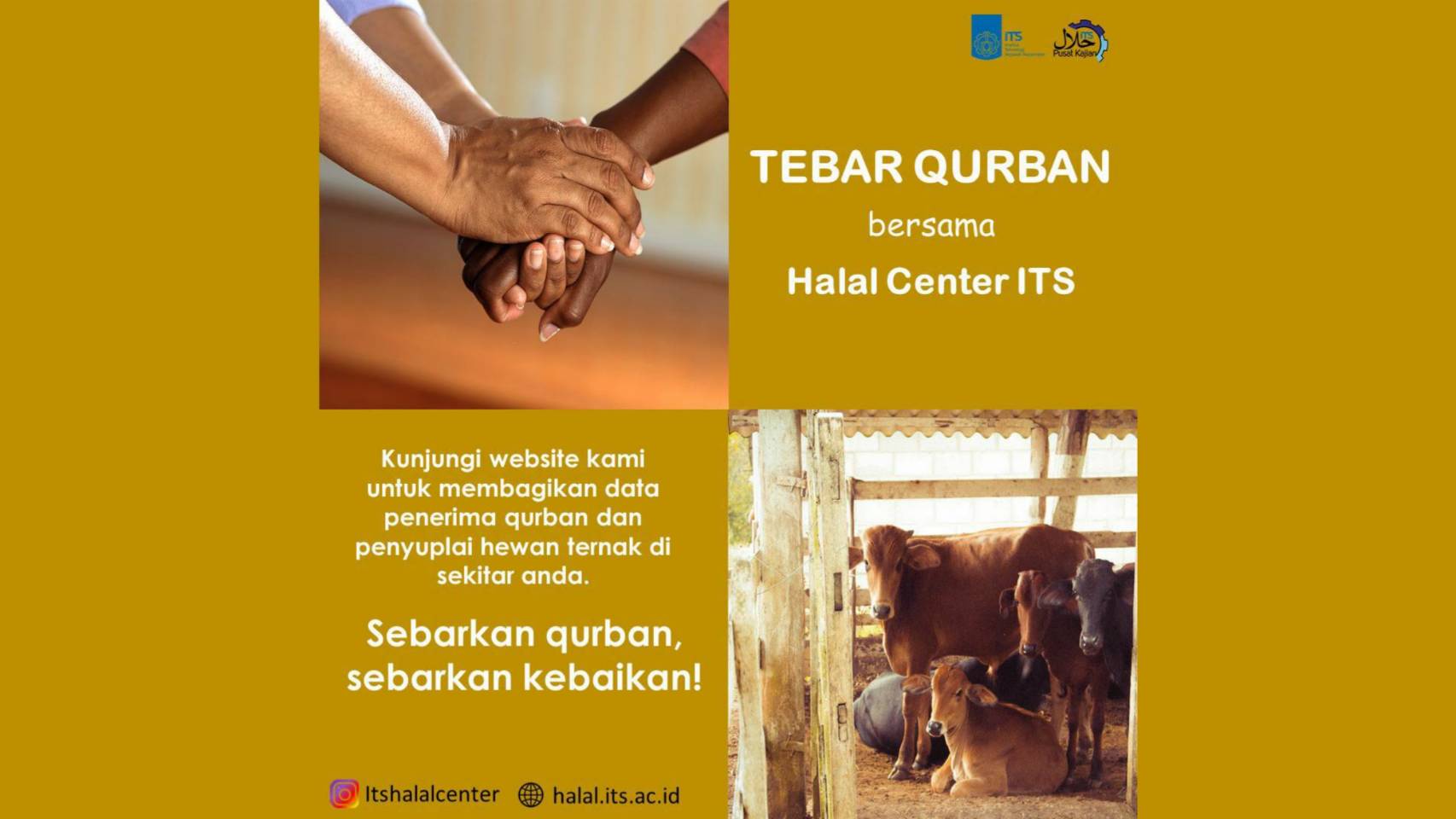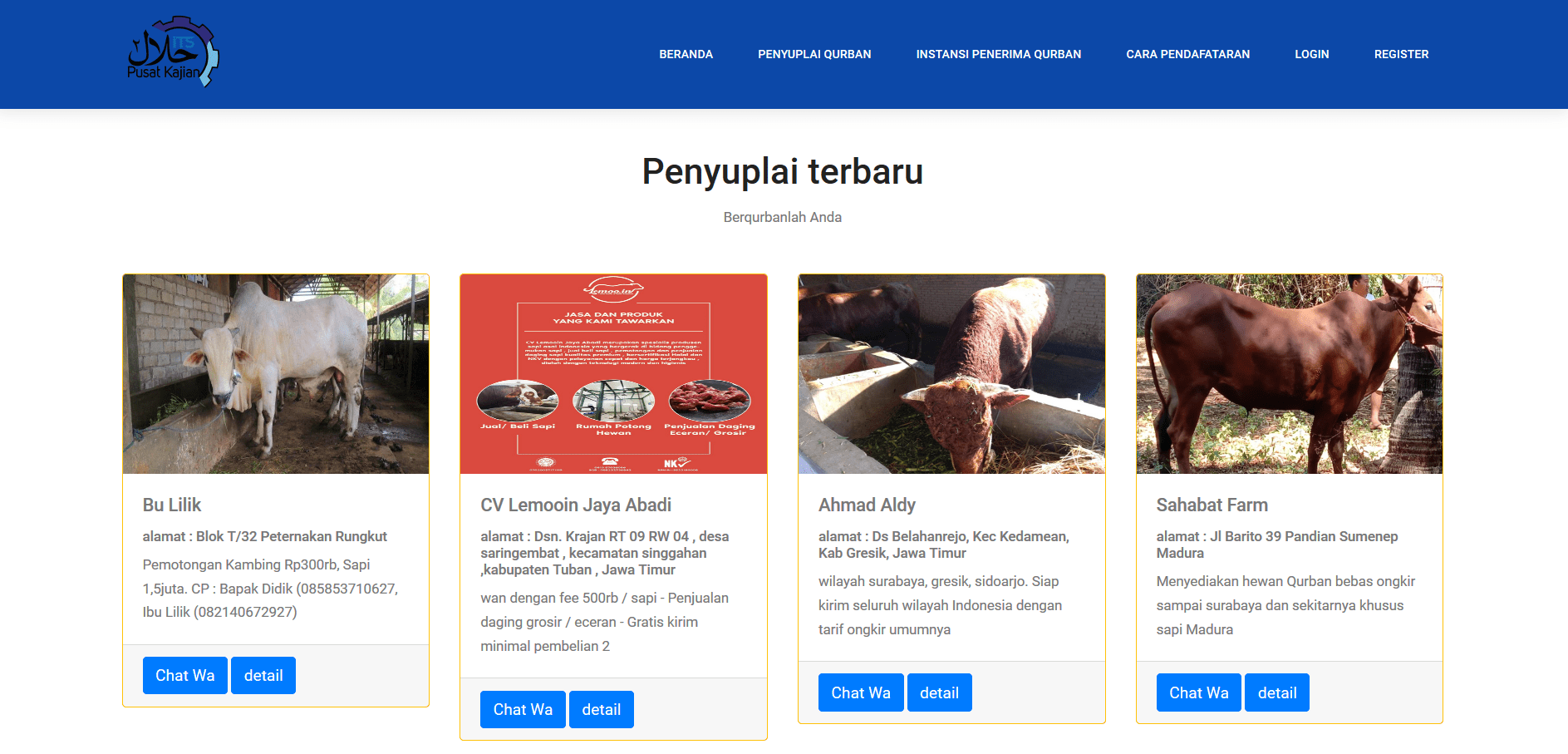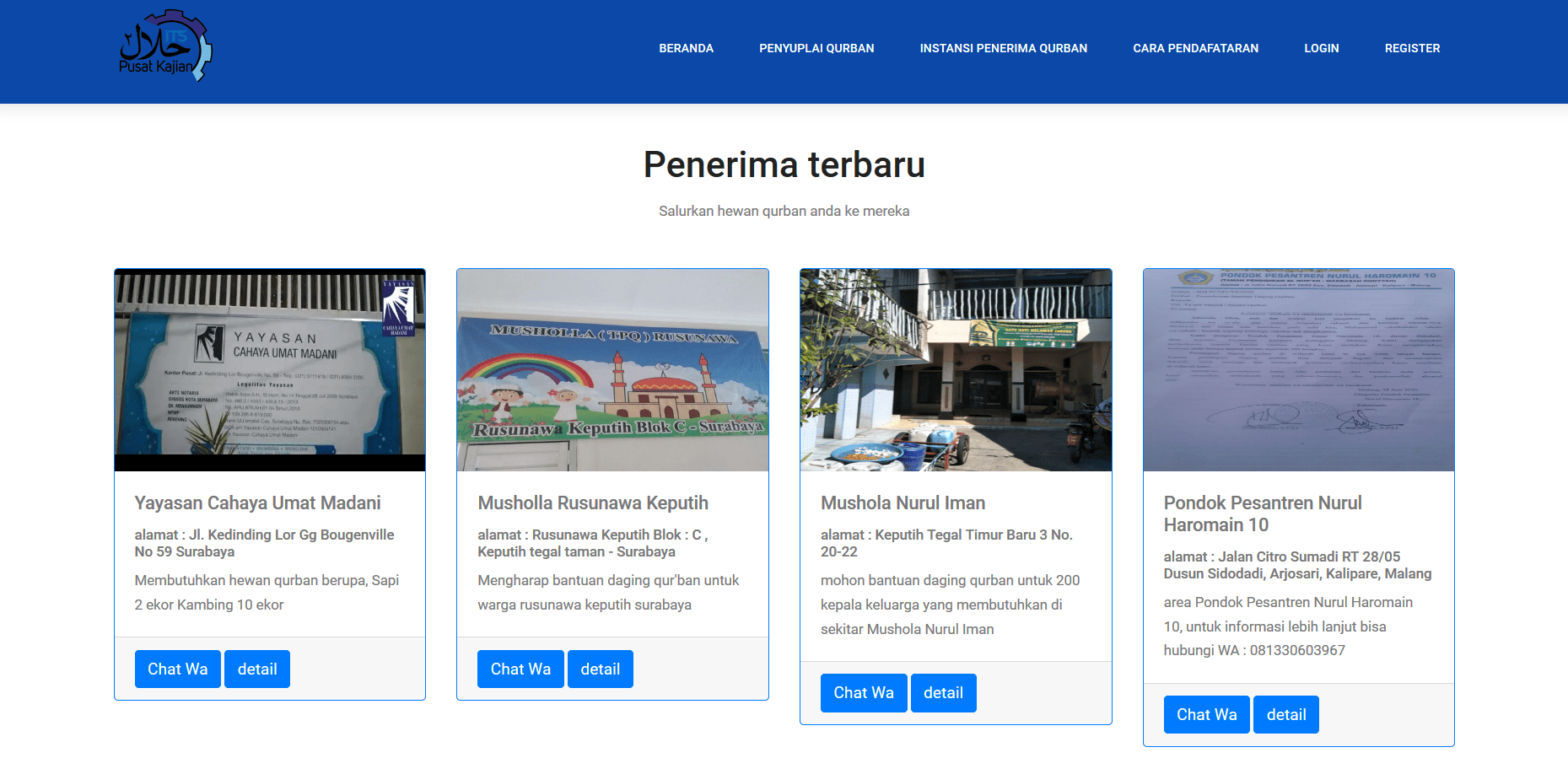Through Tebar Qurban Program, ITS Contribute to Equal Distribution of Qurban Animals

Leaflets of the Tebar Qurban program, ITS Halal Studies Center
ITS Campus, ITS News — Eid al-Adha is a sacred moment for Muslims to share with others through animal sacrifice. In order to equally distribute the sacrificial animals, Institut Teknologi Sepuluh Nopember (ITS) through the ITS Directorate of Halal Studies Center launched the Tebar Qurban program.
Nur Aini Rakhmawati, S.Kom., M.Sc.Eng., Ph.D., Deputy Head of ITS Directorate of Halal Studies Center, explained that Tebar Qurban consisted of two programs with different targets. The first program aimed to facilitate the sale of sacrificial animals by targeting suppliers. “We will upload the available sacrificial animals on the ITS Halal Studies Center’s official website so that buyers can easily find them,” she stated.
According to Iin, a nickname she goes by, this first program was a response to the presence of middlemen who often bought sacrificial animals from suppliers at very cheap prices and then sold them to the public at market-appropriate prices. In other words, this program was wished to be able to directly bridge communication between buyers and suppliers of sacrificial animals. “So that suppliers can avoid losses due to the middlemen,” she emphasized.
The suppliers of sacrificial animals who wanted to participate in the program are required to fill in the necessary data, such as the address and description of sacrificial animals. To complete this filling in of necessary data process, ITS Halal Studies Center offered two ways, namely for them to insert the data directly on the website or through the Whatsapp application chat. “The second method is to anticipate suppliers from villages that are still less reliable in operating the gadget,” she added.

Display of suppliers who participated in the Tebar Qurban program as seen on the official website of ITS Halal Studies Center
Furthermore, this ITS Information Systems lecturer explained that the second program of Tebar Qurban targeted sacrificial recipients such as prayer rooms and mosques in residents’ homes. In this case, ITS Halal Studies Center provided a platform that makes it easy for Qurban donators to find out which agencies are ready to receive the sacrificial animals.
Iin admitted that through this program, an equal distribution of sacrificial animals is achieved. Bearing in mind of the data from Indonesia Development and Islamic Ideas which showed a surplus of 9,000 tons of sacrificial animals in urban areas of East Java and is inversely proportional to rural areas that experienced a deficit of up to minus 22,000 tons. “By knowing more information related to the recipient institution, the giver of the sacrifice has various options on where they should donate the sacrifice,” she revealed.

Display of sacrificial recipient agencies who participated in the Tebar Qurban program as seen on the official website of the ITS Halal Studies Center
To expand its reach, ITS Halal Studies Center, led by Setyo Gunawan, S.T., Ph.D., sought to disseminate this information through various platforms to the public. The target of the program itself was to have as many suppliers of sacrificial animals as possible and recipient agencies to participate in the program. “We hope that ITS Halal Studies Center will consistently carry out good programs for the welfare of citizens,” concluded Iin. (ai/hen/ory/ITS Public Relations)
Related News
-
ITS Wins 2024 Project Implementation Award for Commitment to Gender Implementation
ITS Campus, ITS News —Not only technology-oriented, Institut Teknologi Sepuluh Nopember (ITS) also show its commitment to support gender
July 25, 2020 10:07 -
ITS Professor Researched the Role of Human Integration in Sustainable Architecture
ITS Campus, ITS News –The developing era has an impact on many aspects of life, including in the field
July 25, 2020 10:07 -
ITS Sends Off Group for Joint Homecoming to 64 Destination Areas
ITS Campus, ITS News — Approaching Eid al-Fitr, the Sepuluh Nopember Institute of Technology (ITS) is once again facilitating academics who want
July 25, 2020 10:07 -
ITS Expert: IHSG Decline Has Significant Impact on Indonesian Economy
ITS Campus, ITS News — The decline in the Composite Stock Price Index (IHSG) by five percent on March 18,
July 25, 2020 10:07
